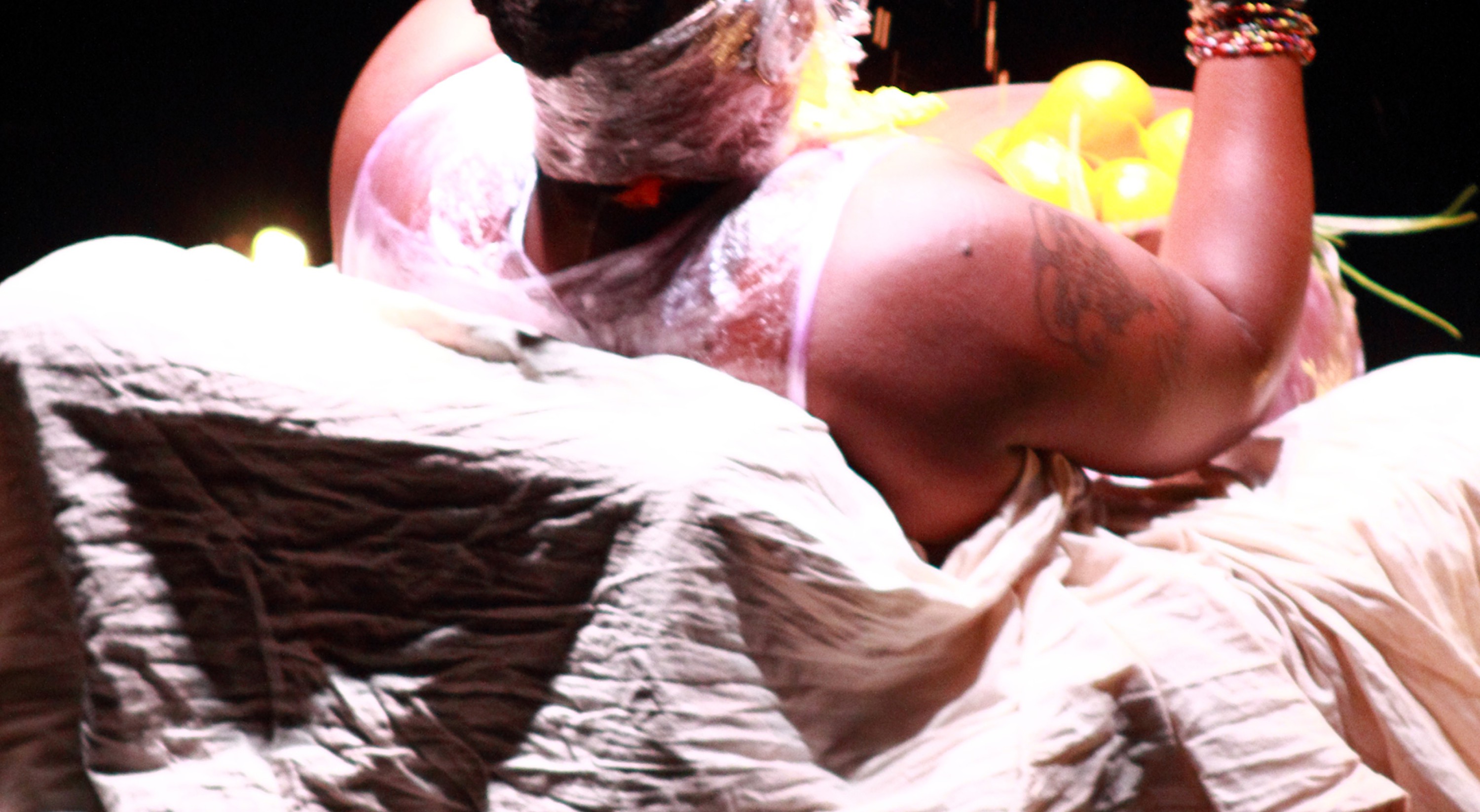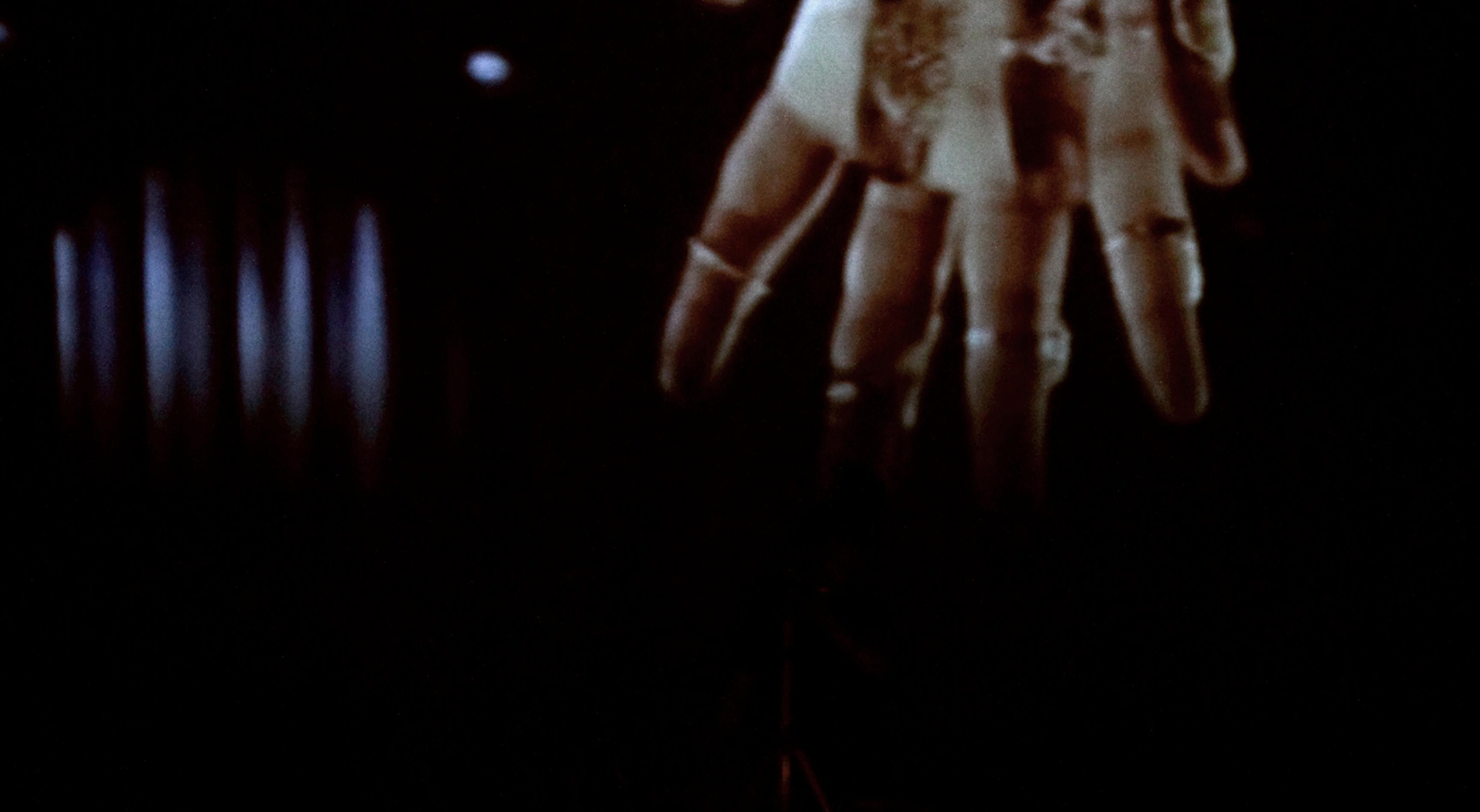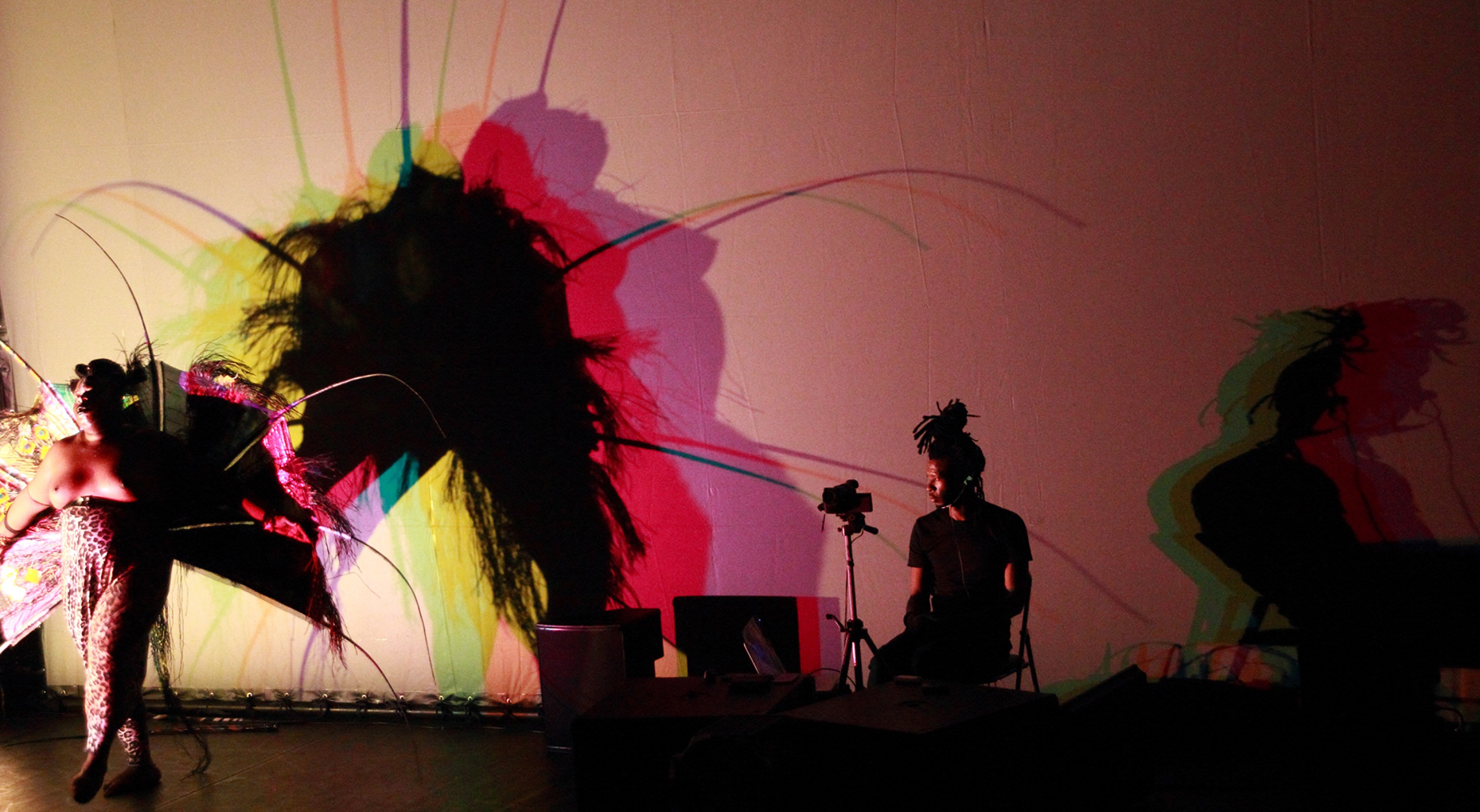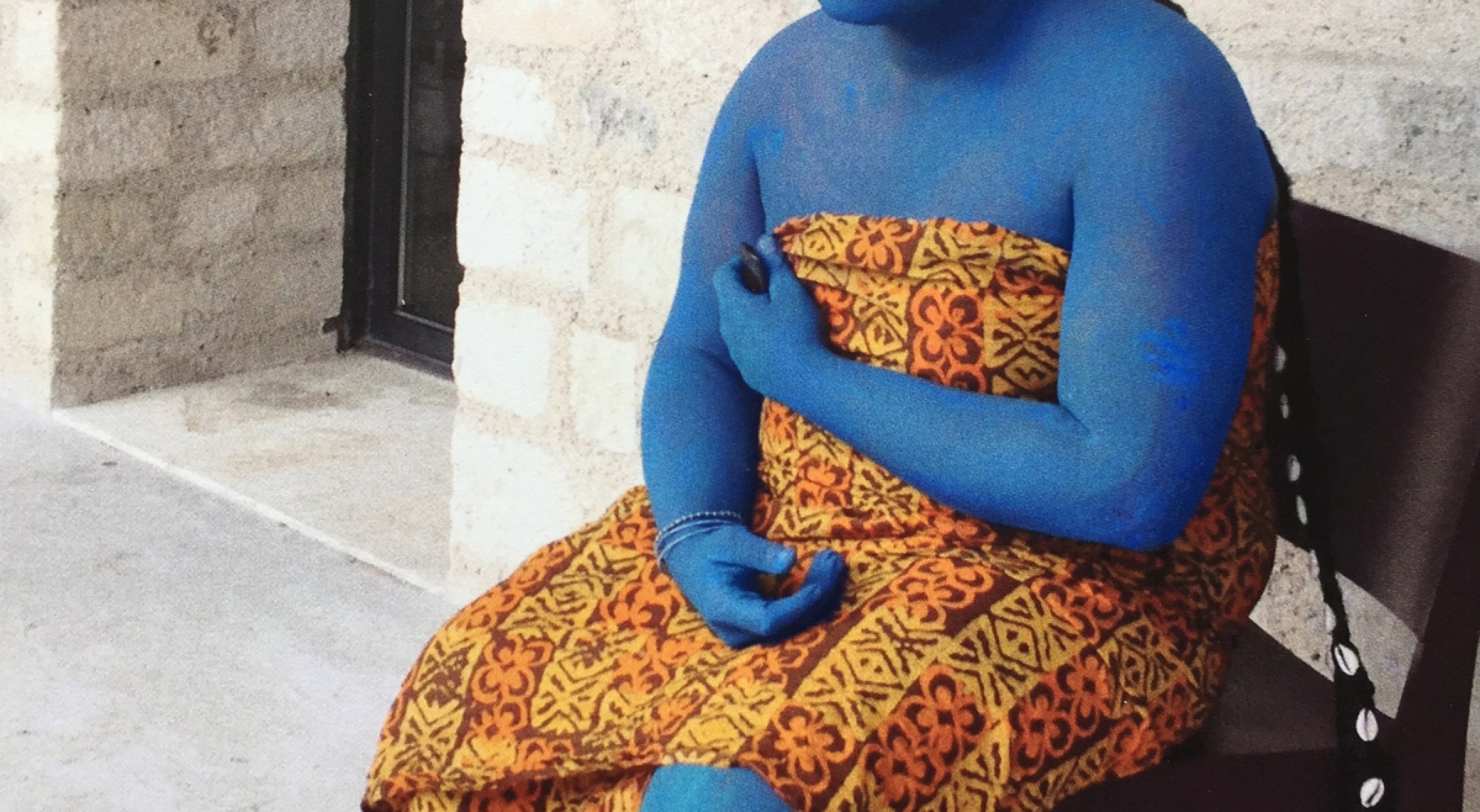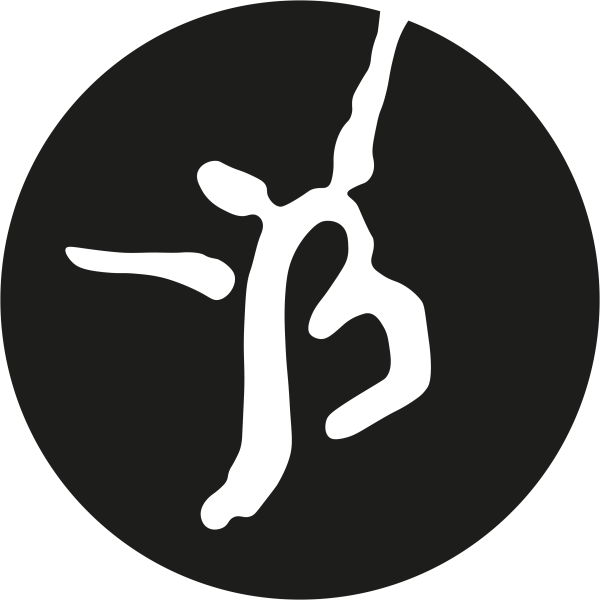Robyn Orlin
And so you see… our honourable blue sky and ever enduring sun… can only be consumed slice by slice…
octoberoct 31 - november – nov 31
A project by Robyn Orlin
With Albert Silindokuhle Ibokwe Khoza
Costume design, Marianne Fassler
Lighting design, Laïs Foulc
General stage manager, Thabo Pule
A City Theater & Dance Group, Damien Valette production // A Festival Montpellier Danse 2016 ; Kinneksbond, Centre Culturel Mamer (Luxembourg) ; Centre Dramatique National de Haute-Normandie ; La Ferme du Buisson, scène nationale de Marne-la-Vallée ; Festival d’Automne à Paris // In association with Théâtre de la Bastille (Paris) ; Festival d’Automne à Paris // With support from Théâtre de la Bastille and Arcadi Île-de-France // Special Thanks to Philippe Lainé for use of images and to Leopard Frock team
First performed on 30th June 2016 at Festival Montpellier Danse
An all-terrain artist - equally at home in a theatre, opera or museum - Robyn Orlin often bases the imaginary foundations of her projects on the invention of photographic collages, forming a medley of colours, forms and references colliding with each other with dream-like logic. For her latest creation, this series of images reveals a blue-skinned figure, dressed in a robe, floating like a meditative divinity against a backdrop of landscapes and deserted architectures. This silhouette and its “search for a place”, like a naïve art icon embedded in the midst of the ruins of different landscapes, is that of Albert Khoza, a young South African performer whose condition cristallizes the questions that Robyn Orlin puts, unrelentingly, to post-apartheid society in South Africa: “Why is not possible to reconcile being gay with traditional culture? Why is not possible to be a university graduate and still practice customary, traditional religion and medicine?” Similar to the two solos written for Éric Languet and Elisabeth Bakambamba Tambwe in In a world full of butterflies, it takes balls to be a caterpillar... some thoughts on falling..., Robyn uses the singular as the basis for articulating the disorders of the world - giving form to a breaking point which overturns Western and African representations. In this solo peopled by multiple presences, Albert Khoza embodies the creative energy of the younger generations and their desire to change the way things are. At the same time, we are given a vision of this society which is torn between its own paradoxes, undermined by unemployment, racism and homophobia. This work, and the glimmer of hope it carries with it, a message crying out to be listened to, invites audiences to partake in an individual’s quest to find their own, rightful place.
See also
In the same place
